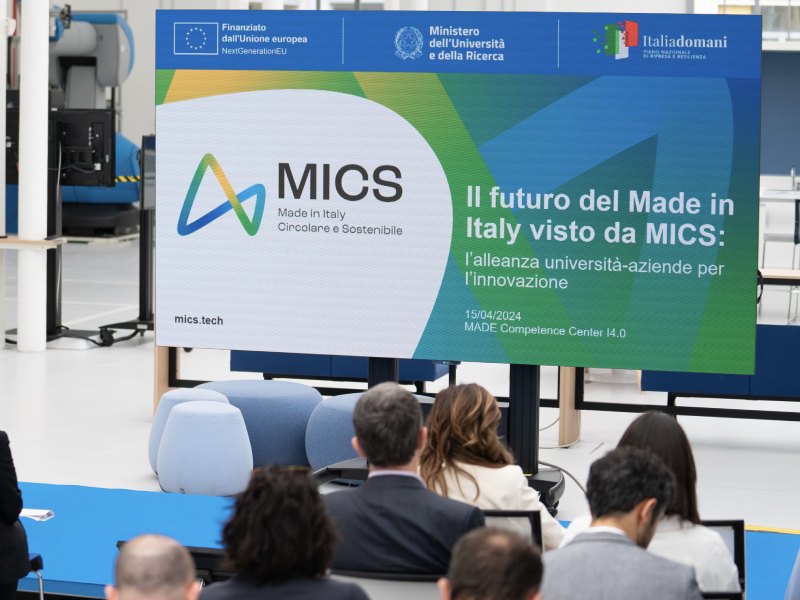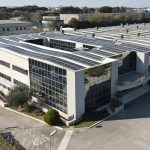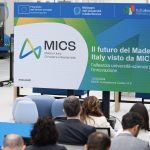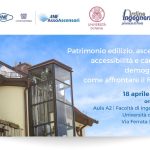Made in Italy: universities & companies for innovation
Industry and universities together to grow, through research, Italian industry and to give more and more strength to Made in Italy in the world, focusing on the concepts of Circularity and Sustainability. This is the driving force behind the Made in Italy Circular and Sustainable Foundation (MICS), which, through an extended public-private partnership, brings together 12 Italian universities and research centres and 13 entrepreneurial realities active in leading sectors of the national economy, such as fashion and textiles, wood and furniture, mechanics and automation.
The ongoing research projects were the focus of the event ‘The future of Made in Italy as seen by MICS: the university-business alliance for innovation’, which was held in Milan, on the occasion of the ‘National Made in Italy Day’.

A picture of the event
The event ‘The future of Made in Italy as seen by MICS: the university-business alliance for innovation’
‘For more than thirty years we have been talking about bringing companies and scientific research into dialogue, to enable Italy to stay in touch with the leading countries in the international economy. We now have the tools to do this and we are determined to use them’. These were the words of Marco Taisch, Professor of Digital and Sustainable Manufacturing at the Milan Polytechnic and President of the Foundation Made in Italy Circular and Sustainable (MICS), at the event entitled ‘The future of Made in Italy as seen by MICS: the university-company alliance for innovation’, organised by the Foundation at the Made Competence Centre Industria 4.0, on the occasion of the first edition of the ‘National Made in Italy Day’ on 15 April 2024.
The meeting, aimed at administrators, industrialists and journalists, and accredited by the Ministry of Enterprise and Made in Italy, saw 16 representatives of the academic and business worlds, part of the ‘MICS family’, take turns to take stock of 8 study programmes funded by the Ministry of University and Research under the PNRR. With over EUR 150 million invested, the activities promoted by the Foundation represent the largest shared research programme funded in Italy in the fields of circularity and sustainability.
The MICS event opened at 11 a.m. with an introductory speech by President Taisch, who emphasised the importance of the synergy between companies and research ‘both for companies, which can benefit from the relationship with universities and research institutes by cutting the costs necessary for technological updating, and for the academic and scientific world, which can find new stimuli in the market, while preserving its autonomy’.
The meeting then continued with the institutional greetings, inaugurated by that of the Minister of Enterprise and Made in Italy, Adolfo Urso, represented on site by Dr. Valentina Coen, and that of the Minister of the Environment and Energy Security, Gilberto Pichetto Fratin, who wished to send a message to the Foundation’s Partners: ‘Transition must hold together respect for the environment, the history of our production system, and the specificities of the economic and social phase that our country is going through. This is the profound sense of sustainable development that characterises us and which finds in Made in Italy one of the most relevant and significant fields. It is initiatives like yours that concretise this commitment, the will to change’.
The President of the Lombardy Region, Attilio Fontana, also warmly greeted us with a video message: ‘I am sorry I cannot reach you, but I would like to express my sympathy. Learning about the Foundation’s investments and such a vast research programme fills one with optimism. Not only because these are trends on which global economic attention is converging, but also because I note one aspect on which it is good to dwell: the cohesion between actors of different natures and on key development issues. I have always supported the importance of moving in a united manner, between the public and private sectors’.
Many research bodies were represented: the Alma Mater Studiorum, the Milan Polytechnic, the National Research Council, the University of Bergamo, the University of Padua.
There were also many companies: Thales, Natuzzi, Albini Group, the Experimental Station for the Leather and Tanning Material Industry – whose event ‘Artisan Intelligence: research, innovation and training to support the excellence of Made in Italy’, organised at the ‘Adriano Olivetti’ Technology Park in Pozzuoli, in collaboration with the Campania Region, was the subject of a video link-up with Milan -, Cavanna, Brembo, Leonardo.
Among the speakers, on the academic side: Michele Zannoni (UniBo), Andrea Ratti (PoliMi), Pierluigi Barbaro (CNR), Giuseppe Rosace (UniBg), Cristina Lavagnolo (UniPd), Sergio Terzi (PoliMi), Roberto Pinto (UniBg), Daria Battini (UniPd) and Bianca Maria Colosimo (PoliMi), professor of Additive Manufacturing and Quality Data Analysis, as well as President of the Technical-Scientific Committee of MICS.
From the corporate side: Elia Sindoni (Thales), Domenico Ricchiuti (Natuzzi), Belén Bonifaz (Albini Group), Marco Nogarole (Stazione Sperimentale Pelli), Luca Durante (Cavanna), Carlo Panzeri (Brembo) and Romano Giovanni Iazzurlo (Leonardo).
The projects illustrated ranged from digital and advanced design to eco-design strategies, from the study of materials to that of production processes, from additive manufacturing to new business models, up to the design and management of the circular and sustainable factory, based on a skilful use of digital technologies through artificial intelligence and data analysis.
The meeting was also an opportunity to present some strategic objectives of the research promoted by MICS: the so-called ‘Flagships’.
These include the possibility of creating, with Italian technologies, a totally self-sufficient factory in Space, based on a ‘closed circuit’ model – with no waste and low energy consumption – that would make it possible to produce the necessary objects outside the Earth’s atmosphere, in particular thanks to 3D printing, making it unnecessary to constantly send materials from Earth. A revolution that would make it possible to cut the costs of human permanence in space, opening up new frontiers for mankind.
Elisa Negri, lecturer in industrial plant management at the Politecnico di Milano and scientific coordinator of MICS, will explore the topic in the day’s closing speech.








